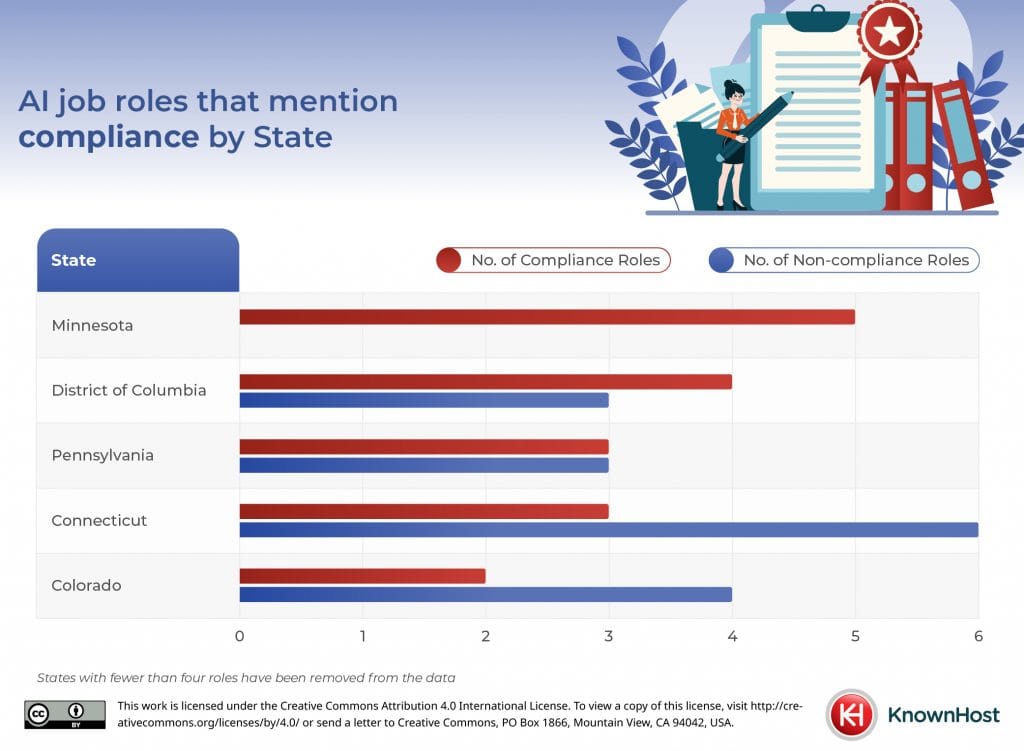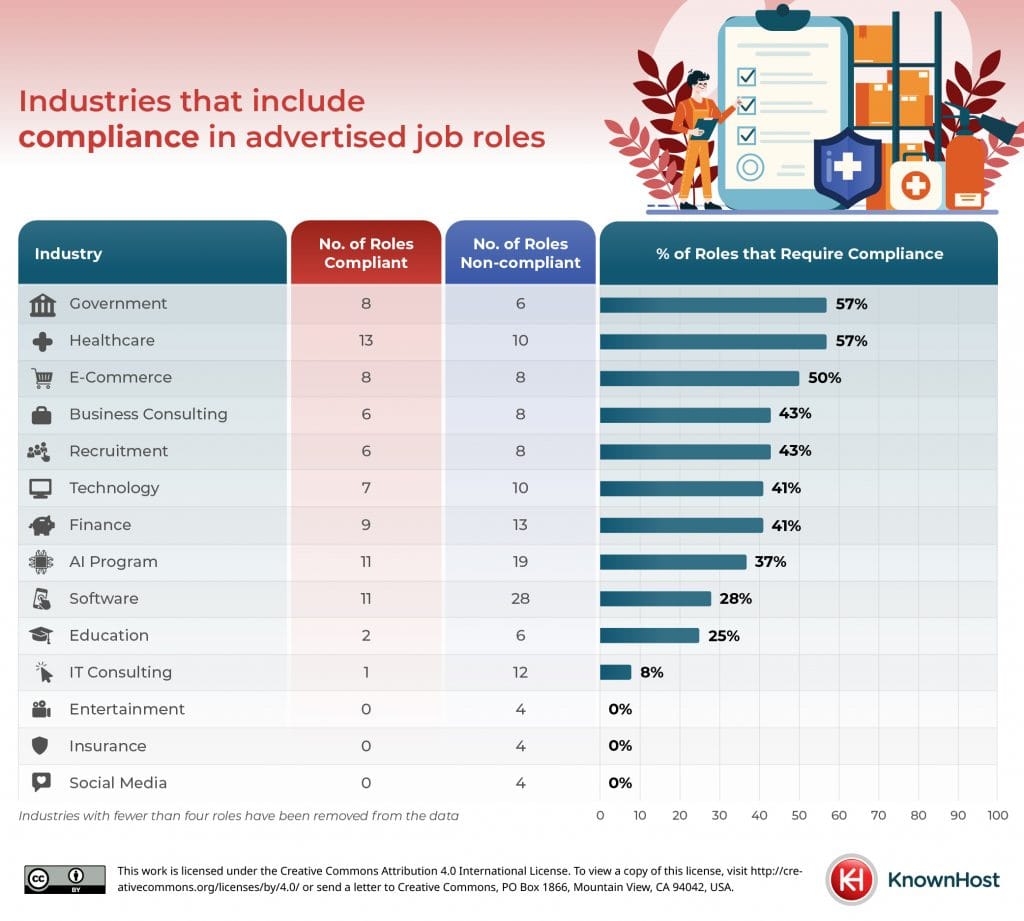How Many AI Job Roles Require Employees to Follow Compliance?
With the rise of AI over the last few years, an increasing number of companies have been looking to recruit engineers to work on AI and machine learning projects. PWC reported a 38% increase in open job roles requiring the use of AI, this goes alongside a 56% wage premium, making these job roles sought after by those with the right skill set.
The increasing use of AI for everyday life has brought on conversations around accountability and responsibility, as AI at its core uses personal data to create answers for the user’s queries. This is an area that is adapting at a slower rate than the uptake of AI. Researchers at KnownHost wanted to find out which industries are ahead of the curve when it comes to compliance in AI and which states these roles are in.
Industries that include compliance in advertised job roles

Less than half of the AI job roles analysed require potential employees to follow either compliance, governance, policy or ethical AI practices. The industry with the highest percentage of AI job roles that mention compliance are government and healthcare industries accounting for just 57% of all analysed roles. The industry with the second highest percentage of compliance requirements is e-commerce with 50% of roles.
Business consulting, recruitment, technology and finance all have a percentage of roles requiring compliance between 40-50%. The software industry has the highest number of job roles, at 39, but only 28% of AI and machine learning job roles require some form of AI compliance.
The industries with the lowest percentage of AI compliance mentions are entertainment, insurance and social media where following compliance was not mentioned across any of the job roles identified. The US government is strengthening its regulation of AI so these job roles will likely have to start implementing some form of AI compliance in the future.
AI Job Roles That Mention Compliance by State

Reviewing the data from a state perspective, there is one that stands out among the rest with every job advertised for it requiring AI compliance. This is Minnesota with five roles. Minnesota has two privacy laws, HF2309 and SF2915, both aimed at protecting consumers and allowing them more choice with how their data is used.
District of Columbia is also noteworthy as there are more AI job roles that require AI compliance than not. Four roles mention AI compliance while three do not. D.C. doesn’t currently have any legislation around AI, however, these roles are likely in the government sector which had the highest rate of compliance.
Other states which mention compliance more often in AI job roles include Pennsylvania with three roles that mention compliance and three roles that don’t. Connecticut has three roles that mention compliance while there are six AI jobs advertised in the state. Colorado has two AI job adverts that require compliance and four that don’t.
Conclusion
The lack of AI job roles that require some form of AI compliance or ethical practice shows how much legislation has lagged behind the creation of AI. Industries such as government and healthcare are ahead of others when it comes to ethical AI practices, however, there are still a number of roles in this area that don’t require any form of compliance.
When reviewing state data, it’s clearer to see how some are falling behind when it comes to following ethical practices. With only jobs roles from Minnesota requiring potential employees to practice ethical AI. District of Columbia and Pennsylvania have a similar number of roles that require compliance to roles that don’t. Whilst Connecticut and Colorado have roles that require compliance, the number of roles that don’t far outweighs them.
Methodology
275 job roles for senior AI and machine learning specialists were scraped from Indeed, Glass Door and LinkedIn. These roles were then analysed to determine the percentage which required potential employees to follow either compliance, governance, policy or ethical AI practices. Information gathered includes industries, salaries and location of each of the job roles.